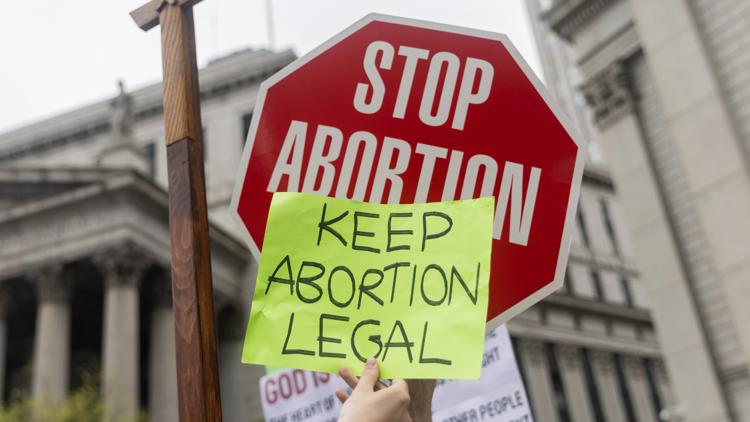The results could influence upcoming legislative battles and shape healthcare policy for millions of Americans.


WASHINGTON — Voters in multiple states weighed in Tuesday on ballot measures that could reshape abortion access, as reproductive rights continue to dominate state-level politics in the wake of the Supreme Court's Dobbs decision.
In 10 states, voters will decide on constitutional amendments and ballot initiatives that would determine abortion regulations in their state. The measures represent the latest chapter in an ongoing state-by-state battle over reproductive healthcare access that has intensified since federal protections were rolled back in 2022.
The results could influence upcoming legislative battles and shape healthcare policy for millions of Americans.
Track results of ballot measures in Arizona, Colorado, Maryland, Missouri, Montana, Nebraska, Nevada, New York and South Dakota below. You can also see the results for a wide range of ballot measure topics.
New York has a measure on the ballot that its supporters say would bolster abortion rights. It doesn’t contain the word “abortion” but rather bans discrimination on the basis of “pregnancy outcomes, and reproductive healthcare and autonomy.”
Bookmark this page and return for real-time local and national election results as they come in.
Abortion ballot measures
Arizona - Proposition 139, known as the "Right to Abortion Initiative," would amend the state constitution in Arizona and establish that every person in Arizona has the "fundamental right to abortion," and establish that the state of Arizona is not allowed to interfere with that right to abortion before the point of "fetal viability."
Colorado - Amendment 79 would enshrine abortion protections in the state constitution, along with requirements that Medicaid and private health insurers cover abortion.
Florida - Amendment 4 would overturn a ban on most abortions after the first six weeks of pregnancy — when women often don't know they're pregnant — that was signed by Republican Gov. Ron DeSantis and took effect in May. DeSantis' administration has taken steps to thwart the campaign for the amendment.
Maryland - Question 1 would enshrine the right to abortion in the state constitution.
Missouri - Amendment 3 would create a right to abortion until “there is a significant likelihood of the fetus’s sustained survival outside the uterus without the application of extraordinary medical measures.” The ballot measure would allow abortions after fetal viability if a health care professional determines it’s necessary to protect the life or physical or mental health of the pregnant woman.
Montana - CI-128, also known as the "Right to Abortion Initiative," would amend the state constitution to bar the government from denying the right to abortion before viability — generally considered to be about 23 or 24 weeks’ gestational age — or when it is necessary to protect the life or health of the pregnant person.
Nebraska has competing ballot measures. One would allow abortion until viability, considered to be somewhere after 20 weeks. The other would bar abortion in most cases after the first 12 weeks — echoing current state law, but also allowing for a stricter one.
Nevada - Question 6 would ensure abortion access for the first 24 weeks of pregnancy — or later to protect the health of the pregnant woman. To change the constitution, voters would need to approve it in 2024 and again in 2026.
New York - Constitutional Amendment 1 would bar unequal treatment based on “pregnancy outcomes” and “reproductive healthcare and autonomy,” along with sex, sexual orientation, gender identity, national origin and disability. Proponents say it would protect abortion access.
South Dakota - Constitutional Amendment G would prohibit the state from regulating abortion in the first trimester and allow regulations for the second and third trimesters only under certain health circumstances.
.png)









 English (US) ·
English (US) ·